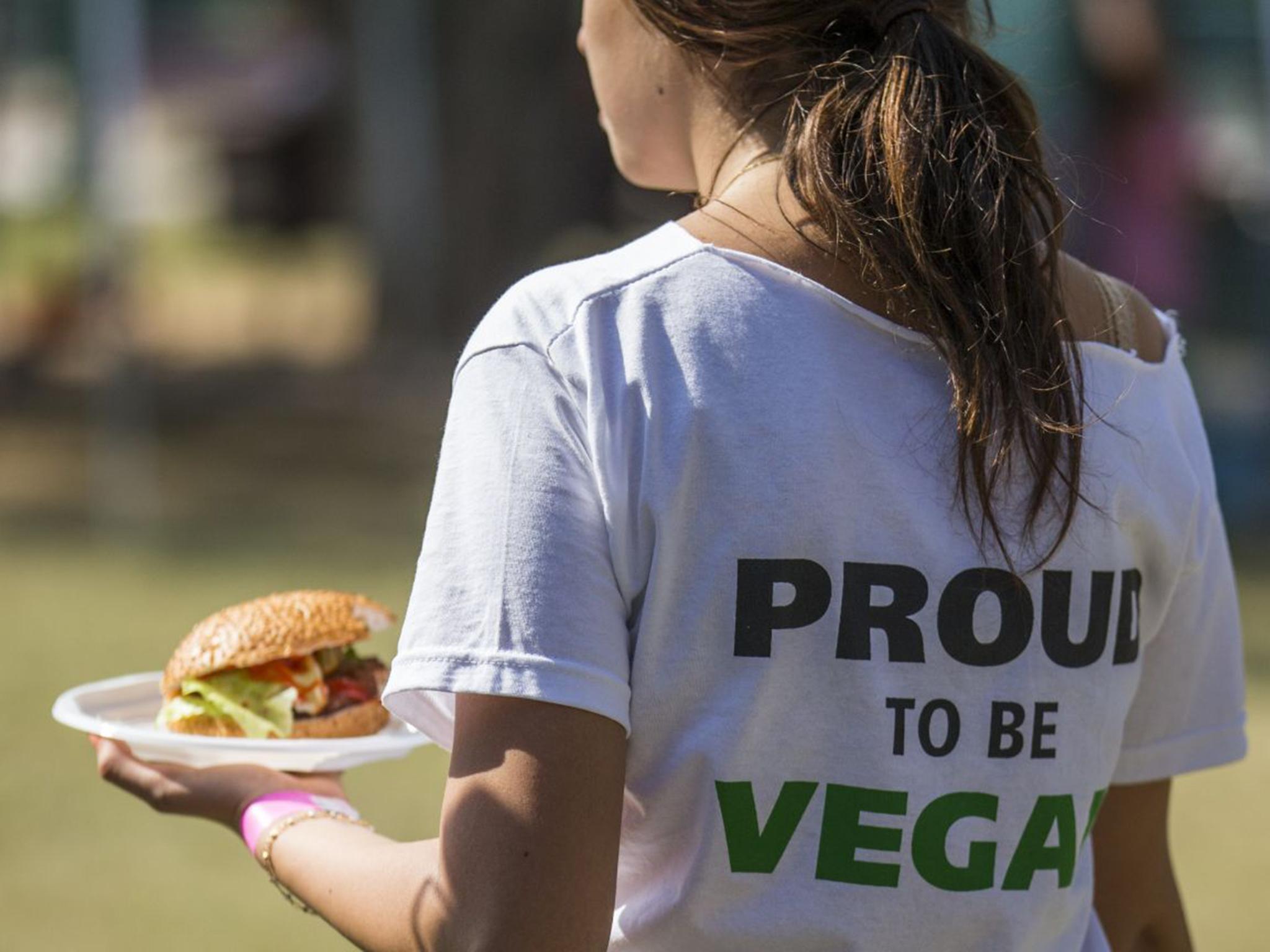This is why you should go vegetarian or vegan for Lent and how to do it
What if there was something you could give up this year that could not only improve your own health but also help combat climate change and save lives?


Your support helps us to tell the story
From reproductive rights to climate change to Big Tech, The Independent is on the ground when the story is developing. Whether it's investigating the financials of Elon Musk's pro-Trump PAC or producing our latest documentary, 'The A Word', which shines a light on the American women fighting for reproductive rights, we know how important it is to parse out the facts from the messaging.
At such a critical moment in US history, we need reporters on the ground. Your donation allows us to keep sending journalists to speak to both sides of the story.
The Independent is trusted by Americans across the entire political spectrum. And unlike many other quality news outlets, we choose not to lock Americans out of our reporting and analysis with paywalls. We believe quality journalism should be available to everyone, paid for by those who can afford it.
Your support makes all the difference.Today marks the first day of Lent, and many people around the around the world – even those who don't consider themselves practising Christians – are gearing up for 40 days of abstention from some perceived vice or other. We've all heard that Theresa May has given up crisps – a popular choice, alongside alcohol, chocolate, and fizzy drinks.
But what if there was something you could give up that could not only improve your own health but also help combat climate change and save lives? Who wouldn't want that kind of bang for their buck?
Well, for those of you still undecided about what to forgo, you're in luck, because you can do exactly that by choosing not to eat meat, eggs, and dairy products – and giving them up may be easier than you think.
The days when vegans brought their own cartons of soya milk to the coffee shop are long gone. As people have become increasingly aware of the systematic cruelty endured by animals raised for food – as well as the devastating impact that animal agriculture has on the planet and the health problems linked to the consumption of animal-derived foods – more and more of us are choosing to leave them off our plates. Google searches for "vegan" have increased by 380 per cent in the last five years, while supermarkets, restaurants, and other businesses are falling over themselves to meet the ever-increasing demand for vegan food.
As a result, there's a greater choice of widely available vegan options than ever before for those of you who are new to the game. In fact, half of Britain's top restaurant chains now offer a vegan main course, according to research by Ethical Consumer. There are veggie fajitas at Las Iguanas, a chilli sin carne at Le Pain Quotidien, miso dumpling Ramen at Yo! Sushi, vegan cheese pizzas at Zizzi, and even a vegan curry at JD Wetherspoon. Plus, dedicated veggie spots are popping up all over the country – in London, you'll find a queue right down the road for Temple of Hackney's vegan fried chicken, while Bristol is poised for the opening of a vegan fish and chip shop.
Although most of us were raised eating animals and have been conditioned not to think about the terrified living being who was killed for our steak, we cannot deny that cows, pigs, chickens, and other animals used for their flesh have feelings, thoughts, and personalities – just like the millions of beloved cats and dogs in this country who are viewed as part of the family. How, then, can we justify the way in which they are treated like machines and endure enormous suffering in the food industry? Cows on dairy farms, for example, are repeatedly forcibly impregnated, and their calves are torn away from them shortly after birth. The males are killed or sold for meat, while females – who are destined for the same cycle of misery as their mothers – are mutilated and kept in filthy and severely crowded conditions.
When chickens are only a few weeks old, they endure a stressful and terrifying trip to the abattoir, where many are killed while they're still conscious. On occasion, animals such as pigs have made extraordinary dashes for freedom while on their way to slaughter – by jumping from moving lorries, leaping fences, or swimming across rivers – because they value their lives just as we do.
Last year, the World Health Organisation listed processed meat – including sausage and bacon – as a carcinogen in the same category as tobacco. Its research found that consuming 50 grams of processed meat a day (less than two slices of bacon) increased a person's chances of developing colorectal cancer by 18 per cent. Another study found that eating exclusively plant-based foods lowers the risk of developing prostate cancer by 35 per cent. Being vegetarian or vegan also reduces the risk of suffering from heart disease, strokes, and diabetes, some of the country's biggest killers.
Going vegan also helps ensure a greener tomorrow. The Worldwatch Institute estimates that a staggering 51 per cent of greenhouse gas emissions worldwide are caused by "livestock and their by-products", which makes sense when you think about the vast swathes of rainforest that are being cut down in order to grow crops to feed the billions of animals we raise every year for meat – as well as the energy required to run the factories, the water wastage, the cows' methane emissions, the fossil fuels burned during transportation, the energy required for refrigeration, the materials used for packaging, and so on. Just imagine how much more efficient our food systems would be if we ate the crops ourselves instead of funnelling them through animals. It's no wonder the United Nations has warned that a global shift towards a plant-based diet is vital in order to alleviate the worst effects of climate change.
Veganism also goes hand in hand with Christian values of compassion and respect for all creation. After all, the Garden of Eden was vegan!
Given all these compelling reasons not to eat animals, it's hardly surprising that 12 per cent of adults in the UK are now vegetarian. The number of 16-24 year-olds who say they're vegan or vegetarian is even higher: 20 per cent and growing. These numbers lead to one conclusion: we're experiencing a fundamental shift in our collective psyche towards a kinder, more respectful way of living. If you haven't tried it yet, Lent is the perfect time to take the plunge, and PETA offers a free vegan starter kit on its website to help people make the transition. After 40 days, I suspect you'll be so hooked that you'll consider making it a choice for life.
Join our commenting forum
Join thought-provoking conversations, follow other Independent readers and see their replies
Comments